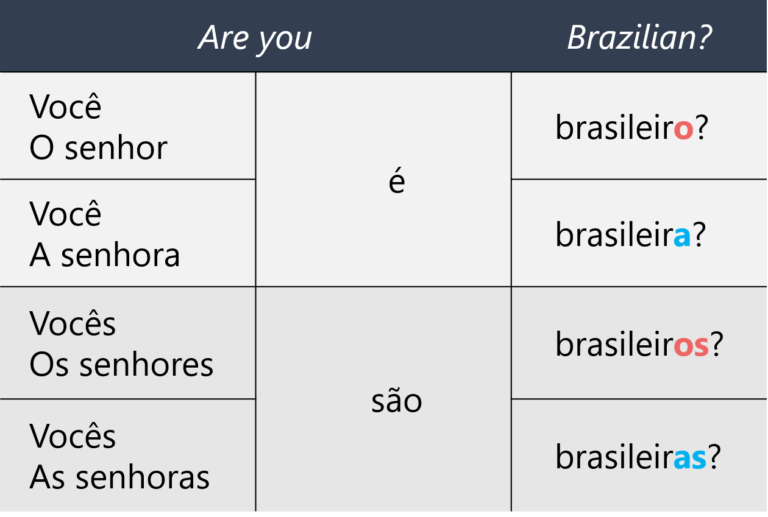Home / Language / Learn Portuguese / Foundations of Portuguese for Global Communication / Language awareness Brazil – Portugal: tu – você – senhor – senhora
This article is from the free online
Foundations of Portuguese for Global Communication


Reach your personal and professional goals
Unlock access to hundreds of expert online courses and degrees from top universities and educators to gain accredited qualifications and professional CV-building certificates.
Join over 18 million learners to launch, switch or build upon your career, all at your own pace, across a wide range of topic areas.

 2. Language from the video:
2. Language from the video: 3. How do tu – você – senhor – senhora work in Brazil?
3. How do tu – você – senhor – senhora work in Brazil? Listen to the questions on the table:
Listen to the questions on the table:

